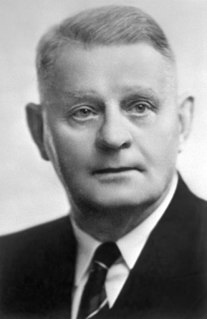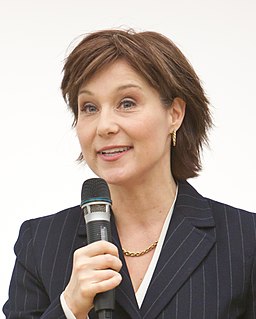Related Research Articles

Herbert W. Greenfield was a Canadian politician who served as the fourth Premier of Alberta from 1921 until 1925. Born in Winchester, Hampshire, in England, he immigrated to Canada in his late twenties, settling first in Ontario and then in Alberta, where he farmed. He soon became involved in the United Farmers of Alberta (UFA), a farmers' lobby organization that was in the process of becoming a political party, and was elected as the organization's vice president. Greenfield did not run in the 1921 provincial election, the first provincial general election in which the UFA fielded candidates, but when the UFA won a majority in the Legislature in that election he was chosen by the UFA caucus to serve as Premier.

Arthur Lewis Watkins Sifton, PC (UK), PC (Can), KC, was a Canadian politician who served as the second Premier of Alberta from 1910 until 1917. He became a minister in the Government of Canada thereafter. Born in Ontario, he grew up there and in Winnipeg, where he became a lawyer. He subsequently practised law with his brother Clifford Sifton in Brandon, Manitoba, where he was also active in municipal politics. He moved west to Prince Albert in 1885 and to Calgary in 1889. There he was elected to the 4th and 5th North-West Legislative Assemblies; he later served as a minister in the government of Premier Frederick W. A. G. Haultain. In 1903, the federal government, at the instigation of his brother who was now one of its ministers, made Arthur Sifton the Chief Justice of the Northwest Territories. When Alberta was created out of a portion of the Northwest Territories in 1905, Sifton became its first chief justice.
The Progressive Party of Canada was a federal-level political party in Canada in the 1920s until 1930. It was linked with the provincial United Farmers parties in several provinces, and it spawned the Progressive Party of Saskatchewan, and the Progressive Party of Manitoba, which formed the government of that province. The Progressive Party was part of the farmers' political movement that included federal and provincial Progressive and United Farmers' parties.

Peter Eric James Prentice was a Canadian politician who served as the 16th Premier of Alberta from 2014 to 2015. In the 2004 federal election he was elected to the House of Commons of Canada as a candidate of the Conservative Party of Canada. He was re-elected in the 2006 federal election and appointed to the cabinet as Minister of Indian Affairs and Northern Development and Federal Interlocutor for Métis and Non-Status Indians. Prentice was appointed Minister of Industry on August 14, 2007, and after the 2008 election became Minister of Environment on October 30, 2008. On November 4, 2010, Prentice announced his resignation from cabinet and as MP for Calgary Centre-North. After retiring from federal politics he entered the private sector as vice-chairman of CIBC.
The Progressive Conservative Association of Alberta was a provincial centre-right party in the Canadian province of Alberta. The party formed the provincial government, without interruption, from 1971 until the party's defeat in the 2015 provincial election under Premiers Peter Lougheed, Don Getty, Ralph Klein, Ed Stelmach, Alison Redford, Dave Hancock and Jim Prentice. At 44 years, this was the longest unbroken run in government at the provincial or federal level in Canadian history.
The Saskatchewan New Democratic Party (NDP) is a social-democratic political party in the Canadian province of Saskatchewan. It currently forms the official opposition, but has been a dominant force in Saskatchewan politics since the 1940s. The party is the successor to the Saskatchewan section of the Co-operative Commonwealth Federation (CCF), and is affiliated with the federal New Democratic Party.
The United Farmers of Ontario (UFO) was an agrarian and populist provincial political party in Ontario, Canada. It was the Ontario provincial branch of the United Farmers movement of the early part of the 20th century.
The British Columbia Conservative Party, or simply the BC Conservatives, is an active provincial political party in British Columbia, Canada. In the early half of the 20th century, the Conservatives competed with the British Columbia Liberal Party for power in the province. Since the 1950s however, the party has had only a minor presence, not having elected a member of the Legislative Assembly in a general election since 1975. The last sitting MLA for the Conservatives was John van Dongen, who briefly crossed the floor to the party in 2012 before leaving to sit as an independent.

John Hamilton Gray, was a politician in the Province of New Brunswick, Canada, a jurist, and one of the Fathers of Confederation. He should not be confused with John Hamilton Gray, a Prince Edward Island politician in the same era.
The Alberta general election of 1982 was the twentieth general election for the Province of Alberta, Canada. It was held on November 2, 1982, to elect members of the Legislative Assembly of Alberta.
The State Legislative Assembly is the lower house of a state legislature in the States and Union Territories of India. In the 29 states and 2 union territories with unicameral state legislature it is the sole legislative body. In 7 states it is the lower house of their bicameral state legislatures with the upper house being State Legislative Council. 5 Union Territories are governed directly by the Union Government of India and have no legislative body.

A general election was held in the Northern Territory, Australia, on 18 June 2005. The centre-left Labor Party, led by Chief Minister Clare Martin, won a second term with a landslide victory, winning six of the ten seats held by the opposition Country Liberal Party in the 25-member Northern Territory Legislative Assembly, bringing their total to 19. It was the second largest victory in any Northern Territory election. The only larger majority in the history of the Territory was in the first election, in 1974. In that contest, the CLP won 17 of the 19 seats in the chamber, and faced only two independents as opposition.
A local option is the ability of local political jurisdictions, typically counties or municipalities, to allow decisions on certain controversial issues based on popular vote within their borders. In practice, it usually relates to the issue of alcoholic beverage and marijuana sales.

The Kerala Legislative Assembly, popularly known as the Niyamasabha, is the State Assembly of Kerala, one of the 29 States in India. The Assembly is formed by 140 elected representatives and one nominated member from the Anglo-Indian community. Each elected member represents one of the 140 constituencies within the borders of Kerala and is referred to as Member of the Legislative Assembly (MLA).
Restigouche-La-Vallée was a provincial electoral district in New Brunswick, Canada.
The politics of Prince Edward Island are centred on a provincial government resembling that of the other Canadian provinces. The capital of the province of Prince Edward Island is Charlottetown, where reside the premier, provincial legislature, lieutenant-governor and cabinet.

The 40th British Columbia general election took place on May 14, 2013, to elect the 85 members of the 40th Parliament of British Columbia to the Legislative Assembly in the Canadian province of British Columbia. The British Columbia Liberal Party formed the government during the 39th Parliament prior to this general election, initially under the leadership of Premier Gordon Campbell then after his resignation, Christy Clark. The British Columbia New Democratic Party under the leadership of Carole James, and then Adrian Dix, formed the Official Opposition. The BC Green Party under the leadership of Jane Sterk and the BC Conservative Party under John Cummins were also included in polling, although neither party had representation at the end of the 39th Parliament.
This is a list of members of the New South Wales Legislative Assembly from 2011 to 2015, as elected at the 2011 state election and at by-elections.

The 2019 Alberta general election was held on April 16, 2019, to elect the 87 members of the Legislative Assembly of Alberta. In its first general election contest, the Jason Kenney-led United Conservative Party (UCP) won 54.8% of the popular vote and 63 seats, reducing Premier Rachel Notley's governing Alberta New Democratic Party (NDP) to Official Opposition with 24 seats. The United Conservative Party was formed in 2017 from a merger of the Progressive Conservative Party and the Wildrose Party after the NDP's victory in the 2015 election ended nearly 44 years of Progressive Conservative rule.
The New Brunswick General Election of 1856 was a very close election. The Conservatives members of Parliament manage to claim 21 seats, to the Liberals' 20. Premier Charles Fisher's alliance of Liberal MLAs were ousted from government, and John Hamilton Gray became the new Premier of the colony. The main issue of the election was Prohibition. In 1855, the Liberals had passed a legislation banning alcohol in the colony, following Maine's example. The new government repealed this act in a special session immediately after forming government.
References
- ↑ Arndt, Ruth (Spence); Spence, F. S. (Francis Stephens) (1919). Prohibition in Canada; a memorial to Francis Stephens Spence. Robarts - University of Toronto. Toronto Ontario Branch of the Dominion Alliance. p. 82. Retrieved 21 February 2018.
| This elections in Canada-related article is a stub. You can help Wikipedia by expanding it. |